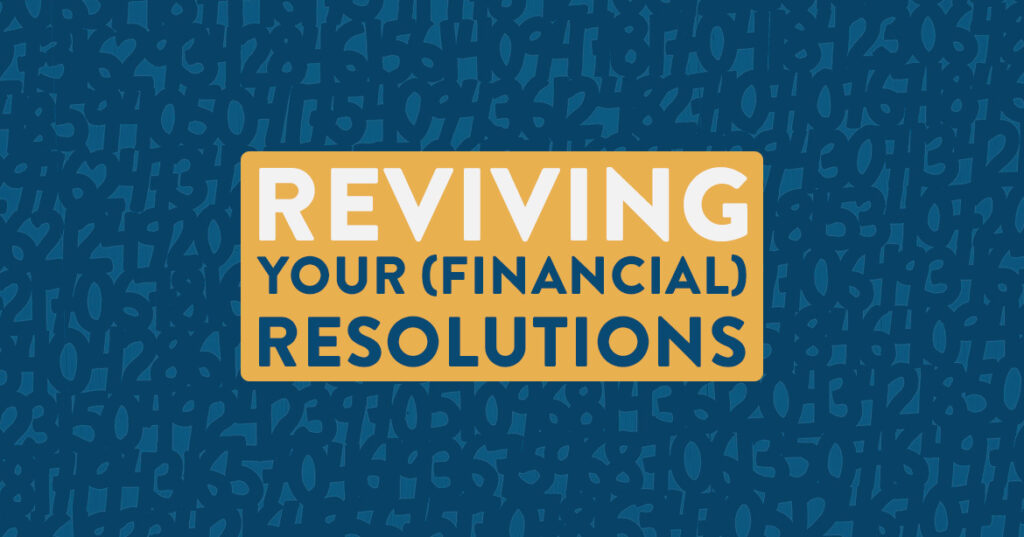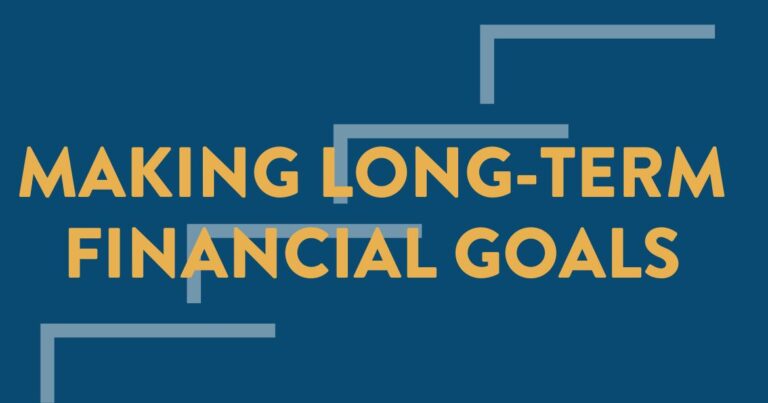We’re about halfway through the year at the time I’m writing this, and if you’re like a majority of Americans, your New Year’s Resolutions likely fell apart 3-5 months ago. The good news is: if you’re looking to experience a financial change this year, it’s not too late! Here are four things you should consider to help you work toward a healthier financial future.
Balance, Not Budget:
Budget isn’t a four-letter word, though I know it sometimes carries the same connotation. In fact, I mentioned a budget with a client last week and her face visibly winced. When I asked what her monthly budget looked like, she immediately assumed I was asking her to restrict her lifestyle. Truth is, that’s rarely something I have to ask of my clients. What I try to pursue for my clients is balance. Whether they know it or not, ultimately that’s what clients often want, too. Saving for retirement is absolutely important, but should you sacrifice so much during your younger years that you don’t live a life you love until your 60s or 70s? Absolutely not!
We often hear from financial gurus that their steps to financial freedom must be completed in order (step #1 has to be finished before you can move on to step # 2). What many never consider is the impact that could be made by tackling multiple steps at once. Consider this: say you have a large sum of student loans, and you think you shouldn’t and can’t save for retirement until those are paid off. Well, according to the Education Data Initiative, it takes an average of around 20 years for borrowers to pay back student loans. According to the programs we mentioned earlier, that means the average person with student debt wouldn’t save anything for retirement until they’re well into their 40s. And if we know anything, it’s that time is the most valuable tool when investing. That’s why I pursue balance for my clients – because to completely abandon an important goal for the sake of eliminating debt might not be the right move. Now, budgets aren’t totally off the table as a tool to help achieve balance, but they can be flexible to fit your life instead of asking you to be the flexible one.
Let Go:
I’m going to go ahead and make a blanket statement that we’ve all made financial mistakes. The richest person in the world has at some point, too. We’re not exempt from slip-ups just because we’re working toward a beneficial goal. I’ve met with many clients who are embarrassed or ashamed of the mistakes they’ve made in the past, but while it’s important to explore and learn from them, holding onto those mistakes and the feelings they evoke doesn’t have any real benefit. The wrong choices you’ve made before are not an indicator of where you’re going. Learn from it, plan for the future, and try again!
Plan:
I’ve got a question for you: are you a planner, or do you enjoy spontaneity more? I’ve seen where the fly-by-their-pants people get irritated with the planners because they don’t have the patience to wait for the plan to emerge; I’ve also seen planners get frustrated with the spontaneous because, well… what’s the point if there’s no plan?
In a cultural time of extremes, it’s important to understand that neither the planner nor the spontaneous are wrong. The key is to plan for spontaneity. Hear me out. We shouldn’t be so flippant to think that everything will work out (therefore eliminating the need for a plan at all), but we also shouldn’t plan every detail to the letter (therefore leaving no room for the what-ifs of life).
I’m a planner – duh, it’s literally my job – and I love to travel with my family. Part of the fun of travel is the planning: figuring out where to eat, where to stay, what to do… But the best vacations I’ve planned are the ones that included a day or two with no agenda. After all, you don’t want to stumble across something cool that didn’t show up in your research and have no way of fitting it into your pre-ordained schedule. What a bummer! It’s no different with financial planning. In fact, once you have a financial plan in place, as you work toward financial independence, you get to maintain it over time as your needs and goals shift.
Enjoy:
I’ve lost count of how many times I’ve met with a client who was fearful that I’d advise them to do something they’re reluctant to do (looking at you, budgeting). But when your plan accounts for things you find fun, you don’t have to wait until retirement to enjoy the fruits of your labor. Working with an advisor on a financial plan can help alleviate your worries about balancing life now and your financial future.
The opinions voiced in this material are for general information only and are not intended to provide specific advice or recommendations for any individual.




